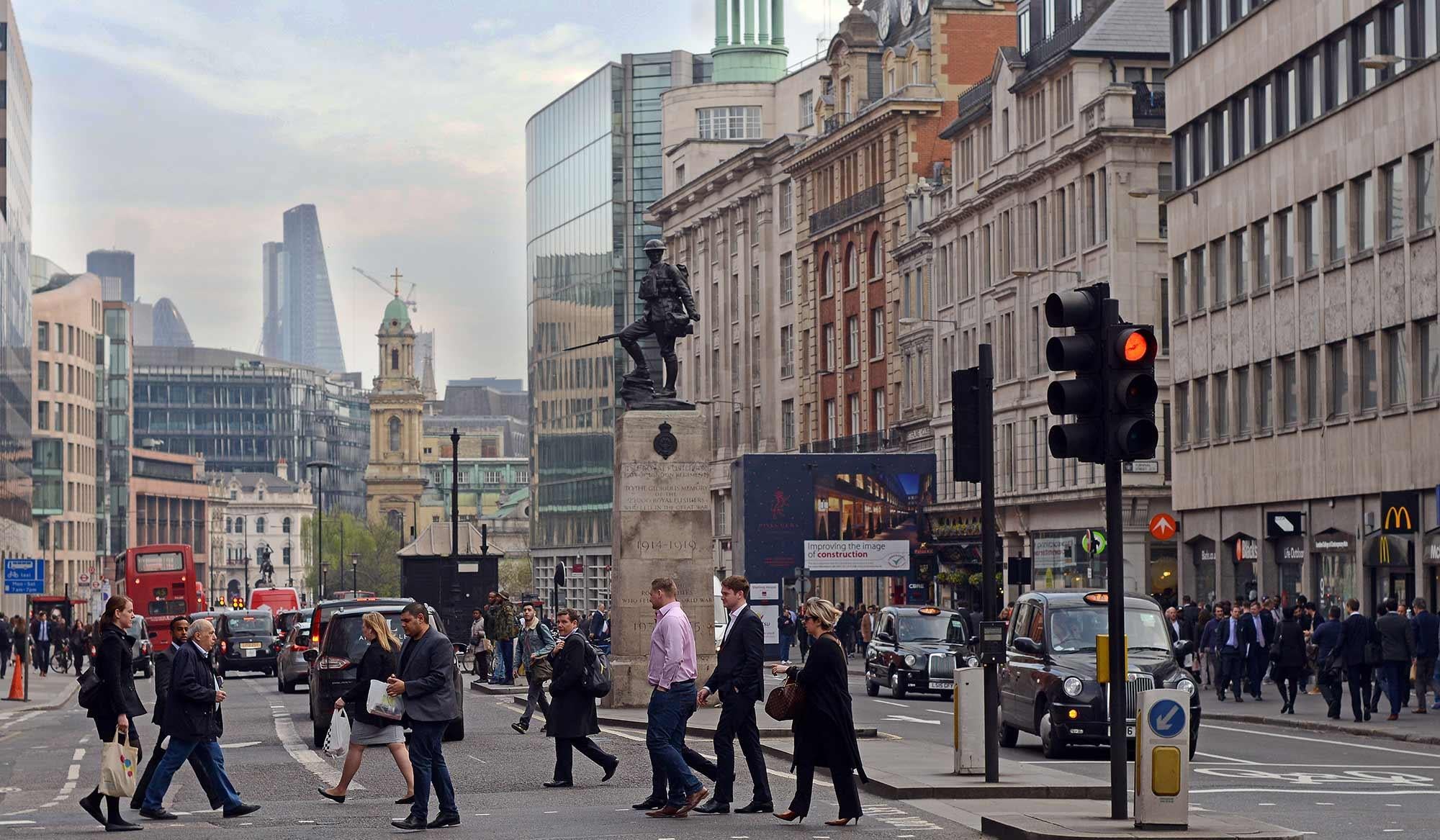Londoners work three weeks a year longer than the rest of the UK – isn't it time to admit the London dream is actually a nightmare?
The “live to work” philosophy has led London into a position of splendid isolation: wealthy beyond measure, but miserable beyond belief, and completely out of touch with an increasingly resentful nation


Your support helps us to tell the story
From reproductive rights to climate change to Big Tech, The Independent is on the ground when the story is developing. Whether it's investigating the financials of Elon Musk's pro-Trump PAC or producing our latest documentary, 'The A Word', which shines a light on the American women fighting for reproductive rights, we know how important it is to parse out the facts from the messaging.
At such a critical moment in US history, we need reporters on the ground. Your donation allows us to keep sending journalists to speak to both sides of the story.
The Independent is trusted by Americans across the entire political spectrum. And unlike many other quality news outlets, we choose not to lock Americans out of our reporting and analysis with paywalls. We believe quality journalism should be available to everyone, paid for by those who can afford it.
Your support makes all the difference.Moving to London from elsewhere in the UK when you’re young is quite the culture shock. Apart from the grime and humidity of the Underground, the morass of people on your daily commute, and the examples of ostentatious wealth sitting side by side with crushing poverty, what can really hit you – especially if you’re fresh from school or university, and have moved to the capital for an ostensibly “nine-to-five” job – is the exhaustion. The hours seem longer, the days more stressful, yet at the same time, everyone and everything moves at a faster pace than you have ever known.
The feeling that you are worked off your feet has an element of truth to it. The Office of National Statistics has this week revealed that Londoners work an average of 33 hours a week, two hours more per week than the rest of the UK. To put it a little more simply, that means that London is at work three weeks longer than the rest of the country per year.
With this in mind, it isn’t hard to understand why London feels so different. London is where the jobs are, if you are young and ambitious, and attracts many people, from all over the world, as a result. This gives it its cosmopolitan, multicultural feel, but the competition for progress, as well as accommodation, pushes up prices, which facilitates the drive for longer hours and more wages. We all know this, and with employers free to pick from such a vast pool of competitive people, it’s not difficult to see why Londoners are currently working longer hours than they have since records began.
Some will point to this as a sign that London is carrying the rest of the UK with it, especially given that the same report says the rest of the country is working fewer hours than, say, 20 years ago. It’s an idea that will play well with many, especially in the wake of the referendum result on Britain’s membership of the EU, with some suggesting that London should separate itself from the UK to form an EU city-state.
But to my mind, it is this London-centric, self-celebratory culture that is part of the problem the UK currently faces. The “live to work” philosophy has led London into a position of splendid isolation: wealthy beyond measure, but miserable beyond belief, and completely out of touch with an increasingly resentful nation.
London is like a vacuum, hoovering up the best and brightest from all around the UK and the lions’ share of financial resources with it. It’s hardly surprising, given the brain drain, that the productivity of the provinces is lower: there are fewer hard-working people to do the work, not to mention fewer young people of working age. Some may say this is because industry has closed in former industrial towns, and traditional jobs have disappeared. This is of course true, but new industries can’t flourish in such places either if the creative minds to think of them have all moved away.
Cities like Manchester and Liverpool have undergone relative transformations in recent years, and are wonderful cities, but when their university students graduate, a significant portion move South – and for all the talk of building a “Northern Powerhouse”, one still notes that London has a disproportionate amount of money lavished on its infrastructure.
And what of the souls who move to London, who do the hard work? A high proportion of my contemporaries suffer from stress and depression – and though it’s tempting to write them all off as “generation snowflake”, there are deeper reasons why waiting lists for therapists and counsellors are so long in London. It is surely no coincidence that, the moment a bank holiday comes round, they leave for the countryside in their droves.
Hard work is no bad thing, and a city like London will always have a higher workload than even other global cities. But in its haste to be the greatest metropolis in the history of mankind, the people of London must not forget the nation that has allowed it to flourish.
The gap between London and the rest of the UK is more than just hours worked. It is a deep cultural divide which only seems to be widening. And the worst part? All those hours worked, all that hard work, all that extra wealth, doesn’t seem to be making Londoners any happier.
Join our commenting forum
Join thought-provoking conversations, follow other Independent readers and see their replies
Comments